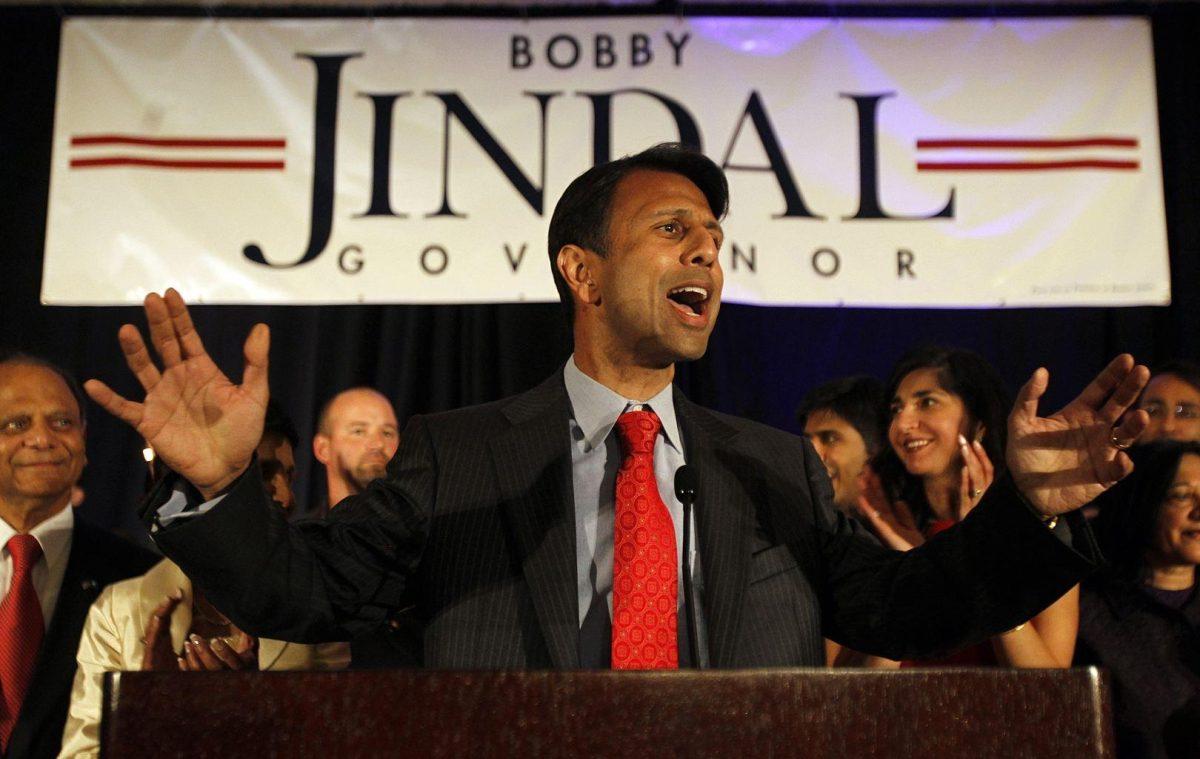Imagine, if you will, a world parallel to our own.
It is a peaceful world — a world where business thrives unfettered and job creators are revered. It is a world in which people are happy and reap the fruits of their liberty. Government is small and taxes a memory stung with regret. It is a world of black and white.
You have now entered “The Jindal Zone,” not to be confused with the similarly named television series from the 1960s.
Portrait of Michael, government worker and model citizen of “The Jindal Zone.”
Thanks to Dear Leader’s restructuring policies, Michael’s department is streamlined, efficient and performing well. In the past years, Michael was able to cut 93 percent of the operating budget, earning him a personal commendation from Dear Leader.
Michael is grateful for his luck and the opportunities afforded him, and wishes to give back to the people who work for him. One day he decides to speak to his underlings face-to-face, an honor usually reserved for “disciplinary scenarios.”
“Attention underlings, I have a request,” Michael booms to them. “Tell me — how are you?”
Terrified this is some type of backhanded test of their commitment, most of the workers smile and mutter meekly, but one cannot contain herself.
Juana, a 47-year-old mother, looks up at Michael.
“Things are difficult. My daughter is pregnant with her first child. We cannot afford the hospital, and ever since Feb. 1, 2012,” – Juana emphasizes this date, as if it has some great outside significance — “Medicaid has not covered in-home care for first-time mothers.”
Michael is bewildered at Juana’s words. Surely there is some explanation for this – Juana simply hasn’t been tugging hard enough at her bootstraps, or maybe this is God’s punishment for some immoral lifestyle quirk.
But before Michael can reassure himself, the other workers, emboldened by Juana’s words, are telling their own stories of difficulty and woe. Rob, the custodian, has children who are behind the others and acting out in school, but he cannot afford behavioral therapy. Reed, the receptionist, has been going to the free clinic since tests showed he is HIV-positive (by the way, the city they live in has the highest HIV rate in the country, with 33 of every 100,000 citizens HIV-positive).
Each of their stories boils down to one fateful Medicaid cut, which coincidentally affects every person in the office but Michael. Dear Leader passed the cut citing the need to fill a budget deficit, but it fit with his policy of chopping limbs from government programs. There were those who opposed it, but they were drowned out by calls for small government and fiscal responsibility.
Michael is shattered and retreats to his office. He opens his desk drawer and drinks straight from a bottle of whole milk he usually saves for celebration.
How, under the watchful eyes and unquestionably moral leadership of Dear Leader, could ordinary people fail so greatly to account for their own well-being?
He decides something must be done, and quickly scrawls a letter to vacuum-tube directly to Dear Leader’s office — in his philosophical purity, Dear Leader has no assistants or secretaries.
Almost immediately, another tube appears in the “In” slot. Michael opens it, and reads the memorandum inside.
“Effective immediately, the government will no longer supply healthcare for upper-level government workers,” the memo reads. “That means you, Michael. By the way, you totally have arthritis now. Yours respectfully, Gov. Bobby Jindal.”
Michael grimaces at the paper, and rubs his hands together. He reaches for his milk, but it slips from his suddenly arthritic fingers and smashes on the floor.
Oh, the cruel irony!
Michael did what he imagined impossible – through no fault of his own, he was brutally kicked in the ribs by random chance and government machinations out of his control. His inherent belief of the justice of the world was turned against him, but such is the strange justice of “The Jindal Zone.”
Gordon Brillon is a 19-year-old mass communication sophonore from Lincoln, R.I.







